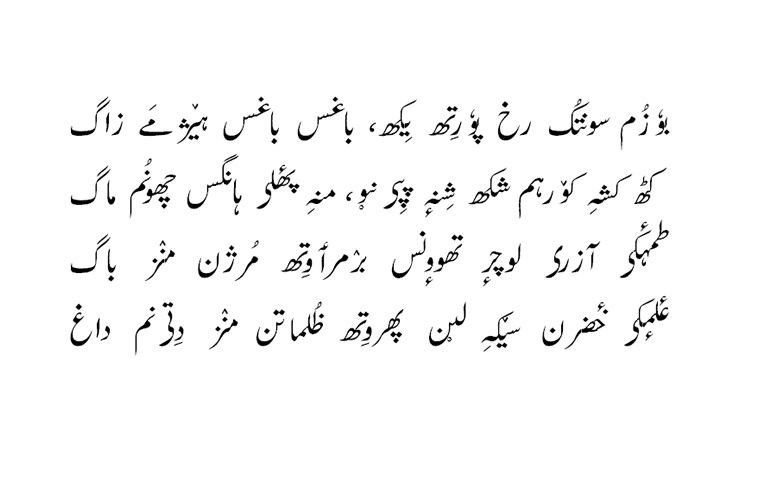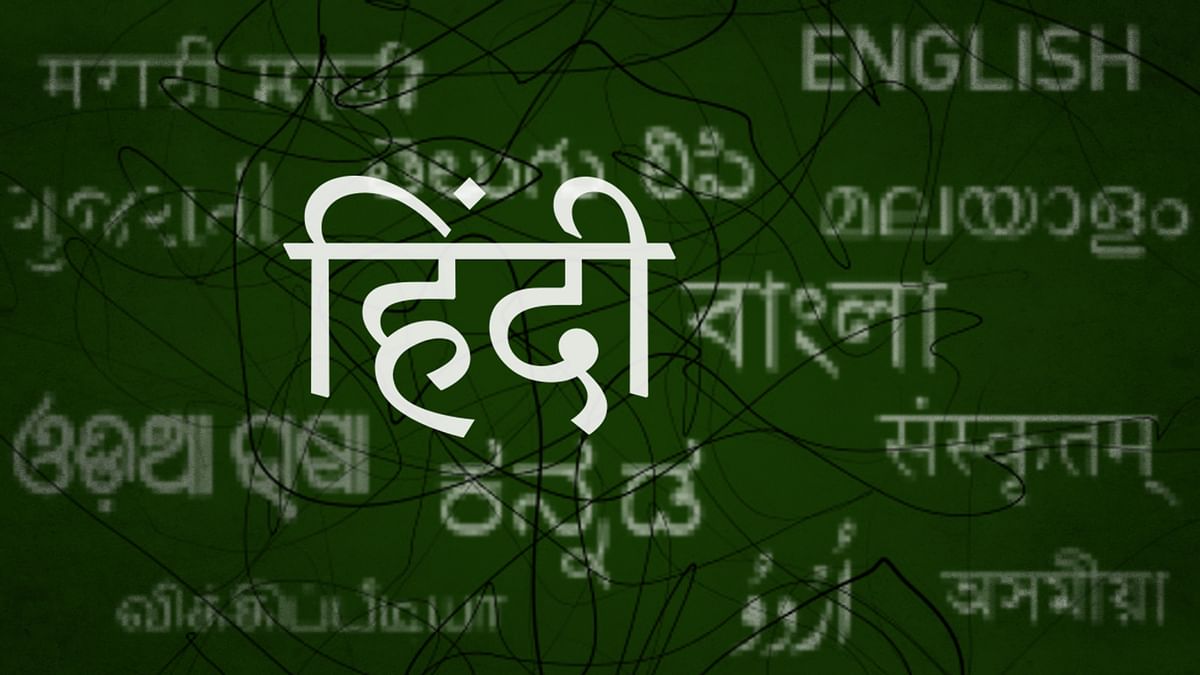Kashmir Might Lose Its Literary Treasure to Script Change

Bisma Farooq is a Staff Writer at the Mountain Ink.
A Kashmiri Pandit body campaign followed by a recent communiqué from New Delhi has made many believe that the Nastaliq script might go the language way in Kashmir.
After blitz and berserk bunch of edicts, brouhaha backed by rightwing lobby has now alarmed Koshur literati circles.
The concern stems from the bolstering campaign led by the vocal minority throwing their weight behind imported Devanagari over the native Sharda script. All this, many believe, is being done to shunt Nastaliq, the script in which Kashmiris school their children, carry their commerce, and read their history.
“If this happens [Devanagari replaces Nastaliq], it will be an attack on the Kashmiri identity and I feel it’s more dangerous than the abrogation of Article 370,” asserts Aadil Mohidin, a Kashmiri language professor.
“If they change the script, then I will return my Sahitya Academy Yuva Puraskar award in protest.”

But beyond the literal dissent, many see it as an attempt to undo Kashmir’s history replete with rich Nastaliq-scripted volumes.
Support Our Journalism
You are reading this because you value quality and serious journalism.
But, serious journalism needs serious support. We need readers like you to support us and pay for making quality and independent journalism more vibrant.
Prof. Mohidin talks about the halcyon days of Iran-e-Sageer—the poetic sobriquet of Kashmir Valley—where Persian was an official language for 200 years. Despite witnessing series of script-altering attempts over the course of its chequered history, Devanagari peacefully coexisted with Nastaliq.
“But now,” Prof. Mohidin argues, “government of India’s recent move has threatened this literal coexistence.”
On heels of implementing language act, New Delhi directed Raj Bhavan to digitize data from Nastaliq script to Devanagari. The move concerned all Kashmiri language writers, readers, critics and teachers, who see it as an act of aggression.
The campaign reared its head after All India Kashmiri Samaj (AIKS), a body of Kashmiri Pandit, justified the use of Devanagari as a co-script for the Kashmiri language.
“But the fact remains,” Prof. Mohidin says, “there’s not a single young Kashmiri Pandit writer today—who can speak or write in the Kashmiri language.”

Even the majority (Muslims) of the valley, says writer Reyaz-ul-Hassan, don’t know about Hindi and Devanagari script.
“I totally condemn this script-altering move,” Hassan says. “This is a big challenge for Kashmiri literati.”
In fact, says Shahbaz Khan, the move is aimed at adopting an incomplete script called Devanagari at the cost of scientific Nastaliq script.
“Every word we speak is transmitted in Kashmiri language, on scientific lines, in the Nastaliq script,” Khan, a writer-researcher, says. “Changing it means pushing the script back to the blank beginning and undoing the very idea of language we understand.”
However, if anyone wants to learn the Kashmiri language with Devanagari script, the government can play its role there. “But for that,” he says, “there’s no need to change the script.”


Seconding the suggestion, Prof. Mohidin details out the significance of the Nastaliq script.
“We’ve age-old literary treasure, be it Quranic translation or other literary resources, in Nastaliq script only,” the professor explains.
“We’ve almost 98 per cent of Kashmiri writers writing in Nastaliq script. The syllabus of colleges, schools and universities is in Nastaliq and approved by the Cultural Academy in 1957.”
A ten rupee note, he says, has 10 languages written on it. One among them is Kashmiri, in Nastaliq script.
“That means it has been endorsed and approved by the government of India,” the professor explains. “Which means they need to translate a whole treasure of Nastaliq script into Devanagari. How is that even possible?”
Such a move won’t only alter the concept of training and learning, the professor says, it will pose a great threat to coexistence.
“Tomorrow, Hindus and Muslims might compete to claim that it’s their language, when in reality, it’s a language of a common Kashmiri,” he says.
“If that happens, it’ll be a big onslaught on Kashmir’s indigenous culture and identity, which will render millions of our books written in Nastaliq script redundant overnight.”
To help us strengthen the tradition of quality reading and writing, we need allies like YOU. Subscribe to us.
Mountain Ink is now on Telegram. Subscribe here.
Become Our Ally
To help us strengthen the tradition of quality reading and writing, we need allies like YOU. Subscribe to us.










